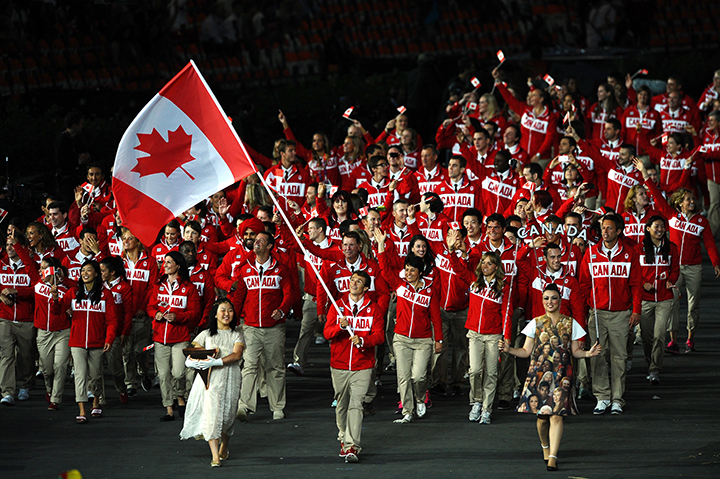Many of Canada’s top athletes will break with tradition this year and stay close to home as they prepare for this summer’s Olympic Games in Rio de Janeiro, Brazil.

“It’s really all about what’s best for the athletes,” said Peter Eriksson, head coach of Canada’s Olympic track and field team. “Whatever’s better for them and for their individual preparation — that’s what’s most important to us.”
WADA chief supports Russia’s ban from 2016 Rio Olympics

Unlike years past, where the majority of Canadian athletes attended “staging camps” close to or within the Olympic host city, many of Canada’s national team athletes will instead complete their final preparations for the Games at home — only leaving for Rio when absolutely necessary.
“I’ll be in Brantford, Ontario,” said Krista DuChene, a 39-year-old mother of three who represents Canada in the marathon. “We’re having such hot and humid weather in southern Ontario this year anyway. So I think it’s perfect.”
Under normal circumstances athletes have many reasons for wanting to be close to the host city in the days and weeks leading up to the Olympics. First, there’s the whole time zone thing. As anyone who’s ever travelled knows, staying awake during the first few days of any trip can be incredibly challenging — particularly if the time change is greater than three or four hours.
“This was a big issue heading into London,” said Brittany Rogers, 23, a Vancouver gymnast who will compete in the team event in Rio. “The nine-hour time change was a lot to adjust to in a little over a week. So it’s great that we’ll only have a one-hour difference this time around.”
For most Canadian athletes, the time difference between Rio and their home cities is significantly less than for previous Games. For athletes based in B.C., the difference is four hours. For athletes from Toronto and Montreal the difference is only one hour. Rio is in the same time zone as Halifax and only half an hour behind Newfoundland. Compare this to the Games in London and Beijing, where the time change for Canadian athletes was anywhere between four and 16 hours, and Rio seems like a relative cakewalk.
A veteran by gymnastics standards, Rogers and her teammates will participate in a mini, five-day staging camp in Sarnia, Ont., before heading to Rio on July 29, roughly one week before the start of their preliminary events on Aug. 7.
Canada’s Rio 2016 Olympics uniforms unveiled

Athletes must also consider the weather when deciding where to prepare for an Olympic Games. Competing in a hot and humid environment can be difficult for even the most experienced athletes. British marathoner Paula Radcliffe, whom many believed was a sure thing to win gold at the 2004 Athens Games, collapsed amid 35-degree heat with less than five kilometres to go in the 42.2-km race. Radcliffe was unable to recover, dropping out of the race, and finished well outside the medals four years later in London.
“Running a marathon in even 20 C is not ideal,” said DuChene. “Most marathoners would prefer to have a race in the fall or spring when it’s five or 10 degrees outside.”
Of course, athletes don’t get to choose when and where they’ll compete at the Olympics. They can’t just wait for a more opportune moment, for the winds to die down or for a stomach bug to pass. When it’s time to go, they go. That’s why it’s so important, said DuChene, that she and other athletes prepare for everything.
Fortunately, temperatures during the Games shouldn’t be all that different from what most Canadians are used to in the summer. Average daytime highs in Rio are expected to be about 26 C with lows around 19 C. August is also the driest month in Rio, with only 50 mm of rain, roughly half of what Toronto receives during the same period.
Still, being so close to home before the Olympics is unusual. Audrey Lacroix, three-time Olympian and the oldest member of Canada’s national swim team, says she’ll have fewer distractions in Toronto, but will also miss the change of scenery she’s grown used to in the lead up to the Games.
“It’s going to be a challenge for me,” said Lacroix. “I’m going to stay in the hotel and be in the mindset of a staging camp, but to be back at the pool I’ve been training in for 15 months now will be tough. I’ll have to remind myself I’m preparing for the Olympics and not just any competition.”
Canadian swimmers will complete a one-week training camp in Toronto from July 22-29 before leaving for Rio. Swimming events begin in Rio on Aug. 6.
(Brian Hill is a four-time Paralympian and former member of Canada’s national swim team. Brian’s partner, Karine Thomas, represents Canada in synchronized swimming and will compete at her second Olympics this summer.)

Comments